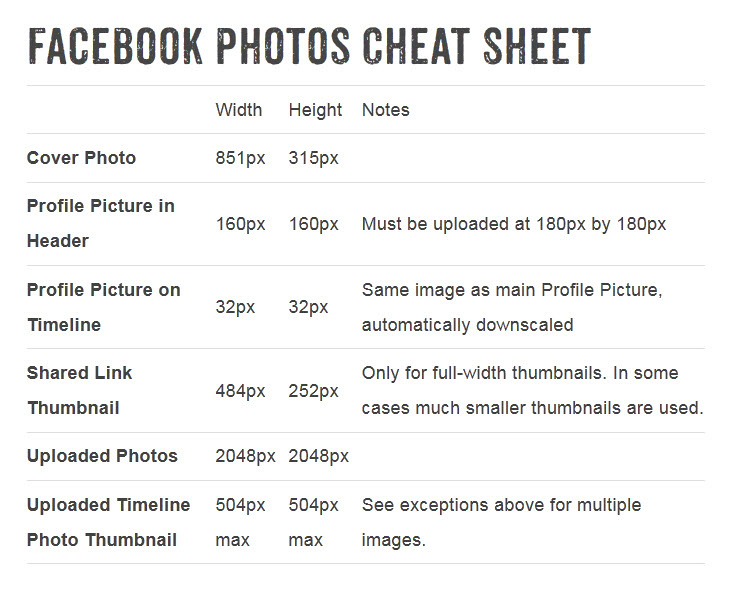Facebook Sharpening & Piracy
I suspect not many Facebook users really think about sharpening their photos before posting. And it may seem odd to include piracy in the same blog---certainly, each can stand alone, but since they relate so nicely together, I thought I'd combine them.
For sharpening, if you don't have the right tools on the device you are using to post, it's not going to happen. Furthermore, is it even worth it? For candid spontaneous selfie shots probably not, but if you have the time and the tools, I think it is.
Most know by now that Facebook resizes (downsizes) images automatically if you try to upload anything larger than 2048x2048 (see Facebook Photos Cheat Sheet below) . Many DSLRs can produce images greater than 12MP (4000x3000), so if you post images directly from your camera, then Facebook will automatically resize them. In this process, your images get compressed and lose sharpness, among other things (this applies to other social media sites as well).


As far as piracy is concerned, at the max Facebook size you can print a fairly good quality 5x7. To avoid other not-so-friendly users from stealing your work, posting photos at about 640x480 (4:3 aspect ratio) or 630x420 (3:2 aspect ratio) is best. At this size, the print quality drops significantly. In fact, it's almost unusable. However, the Web quality is still very good. If you resize smaller than this, it starts to work against your intention of showcasing your work at it's best (in my opinion). Don't concern yourself with DPI---this is Dots Per Inch and relates to prints, not the Web.
Of course, there are still pirates out there who would steal your images for Web uses (i.e. Web design, online advertising, etc.), so the only way to really protect your work is to not post anything on the Internet <period>. How practical is this, especially if you have a web-based business?
Nevertheless, to showcase your images on Facebook with the best sharpness for the Web, you should resize first, then apply sharpening. Some photo editors (i.e. Lightroom) apply "output sharpening" for you automatically, but many don't. The type of sharpening and how much is entirely dependent on the image detail and image size. I was surprised to find that there are entire books written on the subject of sharpening.
So the next time you post a photo on Facebook, there are two things to remember:
- If you want to avoid the possibility of your photos looking blurry, resize them first, then sharpen before uploading.
- If you are worried about someone stealing your photos, never upload anything to the Internet (Facebook or otherwise). However, if you are willing to assume a small amount of risk, then 640x480 is a good place to start (I generally use 1200x800).
------------------------------------------------------------
Note: The question of who has copyright of your photos after posting to Facebook comes up a lot. The short answer is YOU retain copyright of your photos. Moreover, you are not giving up copyright by posting your photos on Facebook, but rather you are agreeing to let Facebook use your photos as they see fit. Some might say there is no difference, but there is.
If someone downloaded your photo from Facebook and used it for personal and/or business gain, then you have a right to sue for damages---provided you can show damages. If you want to make sure your photos are properly documented as being your work, then you need to register each photo with the copyright office.
------------------------------------------------------------
Facebook Terms and Conditions
Sharing Your Content and Information
You own all of the content and information you post on Facebook, and you can control how it is shared through your privacy and application settings. In addition:
- For content that is covered by intellectual property rights, like photos and videos (IP content), you specifically give us the following permission, subject to your privacy and application settings: you grant us a non-exclusive, transferable, sub-licensable, royalty-free, worldwide license to use any IP content that you post on or in connection with Facebook (IP License). This IP License ends when you delete your IP content or your account unless your content has been shared with others, and they have not deleted it.
- When you delete IP content, it is deleted in a manner similar to emptying the recycle bin on a computer. However, you understand that removed content may persist in backup copies for a reasonable period of time (but will not be available to others).
- When you use an application, the application may ask for your permission to access your content and information as well as content and information that others have shared with you. We require applications to respect your privacy, and your agreement with that application will control how the application can use, store, and transfer that content and information. (To learn more about Platform, including how you can control what information other people may share with applications, read our Data Use Policy and Platform Page.)
- When you publish content or information using the Public setting, it means that you are allowing everyone, including people off of Facebook, to access and use that information, and to associate it with you (i.e., your name and profile picture).
- We always appreciate your feedback or other suggestions about Facebook, but you understand that we may use them without any obligation to compensate you for them (just as you have no obligation to offer them).